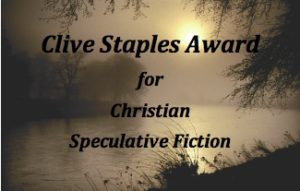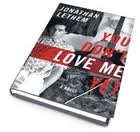Managing The Minefield On The Way To Successful Publication
 Many Christian speculative fiction writers feel as if they have three strikes against them and are out of the game before they’ve even come up to bat. The thing is, we’re not alone. Christians writing mystery or suspense sometimes feel the same way. Women writers of general market speculative fiction feel this way too. For example, one author had this to say:
Many Christian speculative fiction writers feel as if they have three strikes against them and are out of the game before they’ve even come up to bat. The thing is, we’re not alone. Christians writing mystery or suspense sometimes feel the same way. Women writers of general market speculative fiction feel this way too. For example, one author had this to say:
It’s tough, and as an ex-bookseller who once had to cram 800 Stephen King books into a tiny horror section I know space is limited, but the truth is there are TONS of brilliant women writing fantasy and we just don’t see them on display in bookshops. (Jennifer Williams, quoted in “Jen Williams responds to opinions on Bookshops’ perceived SFF Prejudice” at Fantasy Faction)
With the changes in the book industry, I think it’s helpful to discuss two particular elements of writing that lead to successful publication.
By “successful” I mean selling to people other than our friends and family. There is, of course, great success in completing a novel and in getting our friends and family to read it, let alone buy it. There’s great success in influencing one person to live life differently, and there is great success in putting words on a page with the express goal to bring God glory. So by defining “success” as I am, I am not ignoring these other ways of measuring accomplishment. Rather, I’m speaking to a particular purpose–moving books into the public arena so that readers are buying them.
Phase One involves the writing. Some writers will think this a no-brainer, but I’m speaking to my beginning-writer self, and to the many other writers out there who want to write a novel that speaks into our culture so they can change lives or influence people. These are everyday people who want to write, who have a story, who believe their story can make a difference.
Writing fiction is a craft–learn how to do it well. It takes work, starting with learning good technique. Many readers aren’t aware of this. They know story because they’ve been reading stories all their lives, so when they are inspired to tell their own story, they don’t first study how to write a novel, they simply start writing. That was me.
The fact is, there are fiction techniques that make novels better. Stories have structure, and some structure is more effective than others. Characters must be developed and worlds built and themes seamlessly and unobtrusively included. These techniques don’t come naturally. They must be learned.
 There are many ways to learn fiction techniques. One method is to attend writers’ conferences such as Realm Makers, “the preeminent symposium for people of faith who love to create science fiction and fantasy stories.” This year’s event will be held May 30-31 at Villanova University, Villanova, PA. (Registration is now open.)
There are many ways to learn fiction techniques. One method is to attend writers’ conferences such as Realm Makers, “the preeminent symposium for people of faith who love to create science fiction and fantasy stories.” This year’s event will be held May 30-31 at Villanova University, Villanova, PA. (Registration is now open.)
For those who don’t have the time or money to attend a conference, there are innumerable helpful writing instruction books. My favorites include Donald Maass’s Writing the Breakout Novel, Stein on Writing (Sol Stein), Description by Monica Wood, and Characters, Emotion, and Viewpoint by Nancy Kress. There are many, many others including my own ebook, Power Elements of Story Structure.
Some people may not have discretionary dollars to spend on writing instruction books. No worry. There are blogs devoted to writing instruction such as Larry Brook’s Storyfix, K. M. Weiland’s blog, agent Rachelle Gardner’s blog, and many more.
A fourth way to improve writing craft is to join a critique group, either in person or online. Getting feedback on your story can be eye-opening–not always fun or easy, but helpful, nonetheless. There are also contests such as the Spec Faith Challenges or Miss Snark’s First Victim which allow commenters to give a writer feedback.
Finally there are freelance editors who can give you a variety of services, from a paid critique to a full content and copy edit. Of course, some conferences also offer critiques, either for a moderate fee or as part of the conference tuition.
Besides learning and applying good fiction techniques, there’s a second phase to successful publication–promotion and marketing. I’ve seen some not-great fiction sell well because the author has some expertise in this second phase. On the other hand, I’ve seen some quality fiction get lost from the public’s view because the author did little promotion.
Before promotion, there are some key marketing-type things a writer who plans to self-publish should consider such as cover and interior design. For more information on self-publishing, you may wish to read “The Behind-the-Scenes Ingredients for Being a Bestselling Successful Self-Published Author” by Stacey Aaronson.
One of the best ways to promote a book is to speak. This strategy is especially effective for writers of middle grade or young adult books because they can arrange speaking events in schools, allowing them to talk directly to their audience. Some writers are natural speakers while others turn themselves into speakers by studying and practicing through an organization like Toastmasters.
Of course, most industry professionals say that the number one way to promote a book is through “buzz,” or talk about the book generated by readers. Social media offers a number of ways to generate buzz, but unfortunately, too much comes across like spam. Of course, no one has the magic formula, the sure-fired, can’t-miss way of getting attention.
Writing something controversial does often draw attention to a book. See, for example, The Shack. While Paul Young has written other books since that first blockbuster, none has received the public notice that it received. They simply haven’t generated the same level of controversy. Others that may owe their initial success to controversy surrounding the book are Harry Potter and the Sorcerer’s Stone, Fifty Shades of Gray, and The Da Vinci Code.
 Of course, books don’t have to sell at the blockbuster level to be successful. In fact, few ever reach that rank. Still, they might receive more attention because they reach the finals in a contest like the Clive Staples Award or they are featured in a blog tour by a group like the Christian Science Fiction and Fantasy (CSFF) Blog Tour.
Of course, books don’t have to sell at the blockbuster level to be successful. In fact, few ever reach that rank. Still, they might receive more attention because they reach the finals in a contest like the Clive Staples Award or they are featured in a blog tour by a group like the Christian Science Fiction and Fantasy (CSFF) Blog Tour.
More recently collections of writers working together to support and promote each other’s work, such as New Authors Fellowship, has gained traction. Groups like Christian Indie Novelists, a Yahoo! group, offer support, services, and encouragement. The new collective, Ruby Slippers Media, led by Merrie Destefano, is a move toward this kind of author-helping-author promotion.
Of course, Spec Faith is a bit of a conglomeration–supporting writers, holding or sponsoring contests, promoting books. The truth is, a site like Spec Faith needs participation–reviewers offering their reviews, commenters interacting with the daily subject matter, readers voting for contest entries. We do what we do primarily because we want to see more Christian speculative novels become successful, and we count on our visitors to help us.
We’d like to hear from you. What do you think is the most important thing to make a book successful?










































As a self-published author selling between 30-100 books a month, including titles in the Christian Spec Fic genre, I am curious to know why you promote the Clive Staples Award as an avenue to build recognition, when they do not accept self-published works. “Published by a publisher that has no direct affiliation with the author and that pays a royalty. (This does mean self-published works are not currently allowed, not even books self-published through any publishing companies’ services.)” We have our own imprint, Findley Family Video, and a blog with over 2000 followers, and still are not eligible for this award. I guess a better question would be that if you truly believe publishing is changing, why does this post present very little new information that would help authors navigate self-publishing?
I’m not with the CSA, but I can see why they do it.
One thing is that being vetted by a traditional press can at least ensure a baseline of quality. Some self-pubs surpass this easily, while some are fine in story and content but struggle with basic editing issues. Some are just bad in technical senses that would never allow them to see print in even a lax publisher. Part of the problem is that too many self-pubs are the latter two options, even if they have a lot of followers through smart marketing.
Another is that there are some unethical self-pubbers who don’t mind gaming a system or using their fanbases to overwhelm an award. The CSA is important because it is one of the few reader-driven awards for Christian spec fiction out there. It’s a pulse on what the readers like in the genre, and more than other awards is vulnerable to this kind of gaming approach. A trad or small press has a lot to lose if they engage in this, but many self-pubs are “damn the torpedoes!” if it increases their sales from 100 a month to 150.
So it’s kind of rough. Not sure what the solution is.
Mary, I think DM has given you a good take on our thinking when we first conceived the award. But times are changing and so is the award. For example, this year, for the first time, we will have judges choose the winner from the finalists selected by readers. I wish we could keep the award just for readers, but in spite of all our efforts, there were still people trying to game the contest last year.
A second change came last year when Realm Makers, in combination with Spec Faith, was able to offer a modest cash prize to the winning author. As I see it, when we are able to include self-published books, they should compete against other self-published books, not against traditional publishers who have a greater reach. The fact is, we simply don’t have the resources–man-power or finances–to run what would amount to a second contest.
One thing people may not be aware of is that everything about CSA is volunteer. None of us organizing, supporting, or running the contest make a dime from it. We hold the contest because we believe in Christian speculative fiction and want to see it receive the widest audience possible.
We’re hoping the time comes when we can add a division to the award–maybe several. After all, some people would like to see a separate division for children’s books (middle grade and young adult). Still others would like to see divisions based on genre–fantasy, science fiction, and horror/supernatural suspense. We could even make a case for indie press as a separate division. But until we have the resources, it’s all wishes and somedays.
Becky
I agree with Mary. We need two things.
Most important, places like CBD, Lifeway, and the like need to open up their stores to self-published authors. This will become increasingly true. Even now, in Amazon, we’re lumped with Buddhist, Muslim, Wicca, and all the rest.
Two we need a source for vetted Christian speculative fiction. Romance and mysteries are doing quite well, but it’s very difficult to even find Christian speculative fiction.
Hi David,
Can you give examples of what you’d like to see for vetted Christian speculative fiction? From Christian publishers? Reviewed at Spec Faith? liked by your Christian friends at Goodreads? Or something else I’m not seeing?
I would like a resource that would list the Christian speculative fiction available—especially resources with DRM-free ePUBs. Kindle’s listings are very unclear about content. It would be good if there was a rating system for the spiritual content like: old testament, catholic, evangelical, full gospel, vague allegory, angels, demons, spiritual warfare, horror, and so on. But I can see where that would be very hard to manage.
Right now, I have a difficult time even locating good Christian speculative fiction. Often, by the time I find out about a book, it is 3-5 years old or even more. I just reviewed one today from Bethany that I rated minimal spiritual content—vague allegory. It’s got incredible reviews, but none mention the lack of any truth in spiritual content.
Many of the Christian speculative works are Old Testament spirituality, at best. Excellent books like Mary’s Baron’s Ring would never be found if I didn’t know her online. I’ve never found that book in a search for speculative fiction.
I’m not sure what the solution will be or if one will be produced, but it is surely needed.
Perhaps the SpecFaith Library is the solution to this need. 🙂
Yes, it’s a start. I’d never found this listing. I guess I can assume that all authors in this list a Christians, right? Nothing about price or where available. No way to buy anything. But it seems like it might be a good start.
Does it include self-published works. What’s the criteria to get listed?
David, there used to be a list over at WhereTheMapEnds, though I don’t know if Jeff Gerke is keeping that site going or not.
The Spec Faith library does have a link to Amazon, for those who’d like to check a book out there or perhaps wish to buy it online. I don’t see that it would be a problem if the person who submits the book wishes to include a link where it can be purchased, but I don’t head up that section of our site, so I may be speaking out of turn. But if you look in the sidebar next to the book you’re looking at, you’ll see tags that give you some information which can help you determine what type of book it is, and then that link to Amazon. See, for example, this book that came up first on the “newest” list: http://www.lorehaven.com/library/a-draw-of-kings/
As to whether all the authors are Christians–only God knows, but I think all profess Christ. We aren’t trying to ferret out false teaching, though, or to identify nominal believers.
We simply want what you said you wanted–a place where readers can find a list of Christian speculative fiction. Since we’ve added reviews, we also are offering readers some way of discerning, through the eyes of the reviewers, what books might be the best.
And we discuss discernment here. Often! 😀
Becky
Well, that’s the thing about crowdsourced resources: they require public participation if they’re to be of any use to the public. If everyone reading this would submit one title to the SpecFaith Library, or review one of its current titles … well, then. There’d be that many more titles and reviews. 😉
That sounds good, however there is one practical issue common to most crowd-sourced resources. They are terrible for discovery. When I come to this site, I have a very difficult time findings anything. I finally guessed you were talking about the link called “Library”, BUT library doesn’t even fit on the menu bar and it’s stuck by itself in the middle of nowhere.
When I Open it, I find a completely unorganized endless list—actually 20 different pages of endless list. I’m looking for epic fantasy, but I see no way to search for that. The author or publisher lists are of no use as I know none of the names (and don’t care). What I want is the available Christian epic fantasies, or high fantasies, pr however they’re listed this week. I see Carr’s newest. It’s pretty good, but a real disappointment after the first two. But I’ve read it. So, I want to find similar series. Can see no way to do that. So, it’s back to the jungle of amazon…
I would review for Specfaith, but whenever I commented on books in the library I was the only one, and I don’t want to be the guy who is seen as spamming. I had the same issue with Goodreads, because many times I was the only or first one to actually review a book there. So I moved to reviewing at a stand-alone blog.
People are reading these books, and it needs to be more the readers of this blog who review, not just a small group of commenters.
Apparently the BookTags are also difficult to find. Becky mentioned those — they are the best way to cross-reference similar books in the Library. A SpecFaith upgrade/webscape redesign may solve this. Such changes could also make the Library easier to find on the front page.
It’s only spam if it’s not germane to the topic at hand, DM. And since the whole point of the SpecFaith Library is to provide Christian spec-fic fans with a platform to engage the material that’s out there, I’d encourage you to go forth and review to your heart’s content. You never know who’ll be grateful to read your responses. Moreover, I think you should consider publishing a review or two through SpecFaith’s Featured Review pipeline, which is open to all and even accepts reviews you might’ve already posted to your own blog. All you need is a thoughtful analysis of over 300 words.
One reason people might not mention spiritual content in a book is because they don’t want to turn off other potential readers
I hear that argument a lot. It seems to me to come dangerously near to bearing false witness. If it is in the content, it’s there. If you trick someone into reading your book,they’ll almost surely be offended…IMHO
Maybe all the Christian spec fic authors can be encouraged to get reviews of their work put on this website, Spec Faith.
Are you saying that someone else has to submit a book or review for inclusion in the library or reviews resource? The author can’t submit it him/herself? And thanks so much for the shout-out about the Baron’s Ring, David! I appreciate it.
Hmm, no, we receive submissions for Christian-worldview novels from authors all the time. And yes, self-published novels are included. Over the weekend we put through four more novels that met the submission criteria, including three self-pubbed ones.
I’ve submitted my middle-grade speculative fiction book twice and have yet to see it included in the list. Thanks for your attention to this matter. Blessings.
Our apologies for the difficulty. I just ran a search for your name, Charmaine, and found no SpecFaith content beyond comments here. What is the book’s title?
Thief of Heaven. It is middle-grade speculative fiction. Thank you for looking into this!
I think Phyllis is talking specifically about reviews. It really would make our library a lot more user friendly if there were more reviews. I think potential readers want to hear what others have to say. I think it matters if someone who doesn’t like a book that is overt in presenting it’s themes reads a review saying a book was preacher or that the theme was well integrated into the story. Those are very helpful in trying to decide between book A or bookB.
I also like the tags which help readers see at a glace whether the book is urban fantasy, dystopian, populated with elves or vampires or ghosts or whatnot. The category may be speculative but that’s so broad, we don’t all like every title that fits under that umbrella. So those tags and the book descriptions really help, I think.
Becky
Great overview, Becky. Nice and concise. I can’t speak from personal experience, as I’m not published myself, but I tend to get the feeling that, in the interest of achieving victimhood-status to excuse a lack of success as you’ve defined it here, many aspiring authors tend to overcomplicate the process. But in the end, it all seems to come back to craft and marketing, craft and marketing. Simple, yet maddeningly difficult.
Regarding craft, I’ll add another self-help resource to those you’ve already mentioned: Writing Excuses. This weekly podcast, winner of a 2013 Hugo, is basically a free college education in the art and science of spec-fic writing as taught by “successful” industry professionals. It’s honest, pithy, and crazy-good. It’s a constant inspiration.